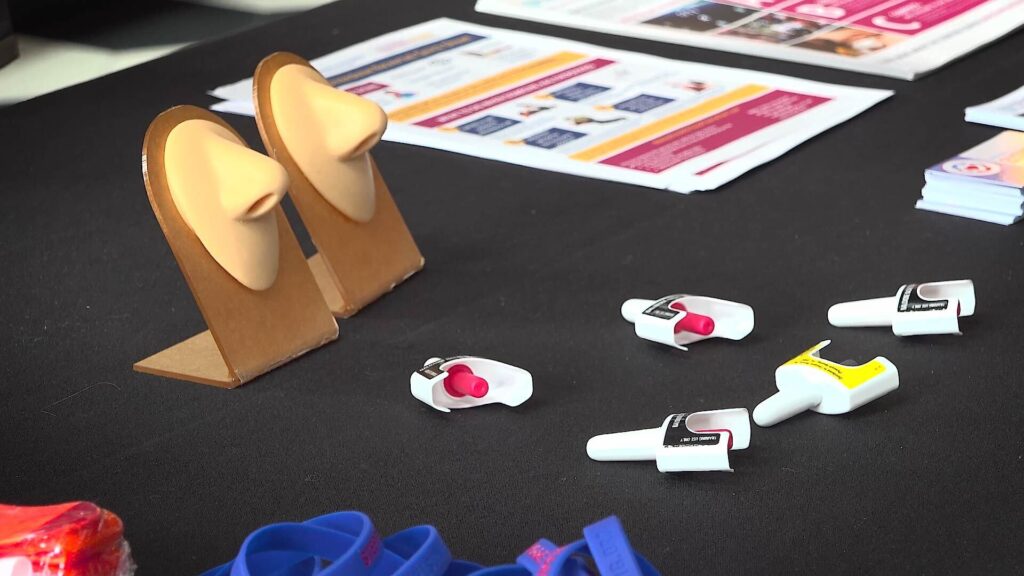BOSTON — The tables set up near the entrance of the Big Night Live concert venue looked like a typical merch spread. But instead of band T-shirts and buttons, there were plastic models of human noses and a handful of naloxone nasal sprays.
This unusual display was part of a medical training for bar and restaurant workers — who are often the first to encounter people experiencing a drug overdose. Led by public health and medical professionals, a crowd of servers, bartenders, and security staff practiced administering naloxone, a medicine that can rapidly reverse an opioid overdose.
“[Restaurant workers] tend to be working in areas where substance use might be more prevalent. In bar scenes, you see a lot of alcohol use and also other drugs,” said Cheryl Lang, senior program manager at the Stepping Strong Center at Brigham and Women’s Hospital. “We really wanted to equip the hospitality industry with being able to respond in the event that an opioid overdose happens.”
The training also offered basic first aid, including how to stop blood loss using a tourniquet and other techniques for responding to traumatic injuries.
The Stepping Strong Center for Trauma Innovation was founded in 2017 and named for Gillian Reny, who was injured in the 2013 Boston Marathon bombing. Doctors at the Brigham were able to save her legs. Her mother, Audrey Epstein Reny, co-founded the center. “We experienced firsthand what it’s like to have an accident, unanticipated, enter into your life,” said Audrey Reny, “and so we are committed now to helping others become responders so that they can prevent tragedies when they occur unexpectedly.” The center chose to emphasize naloxone training because drug overdoses, primarily driven by opioid use, are the leading cause of accidental death in the country.
Not only are food service jobs the third-largest employment category in Massachusetts, according to the U.S. Bureau of Labor Statistics, but close to one-fifth of U.S. hospitality workers have a substance use disorder. Because of these factors, having workers trained on how to quickly respond to an overdose is critical.
Opioid overdoses can depress respiration to the point where people stop breathing completely. Once breathing stops, brain damage starts to occur within minutes. Having bystanders trained to help until an ambulance arrives could be the difference between life and death.
“I think most people want to be able to do something positive if there’s an emergency and want to be active bystanders,” said Alexander Ordoobadi, a general surgery resident at the Brigham and a research fellow at the Stepping Strong Center. “We really just want to empower people to have the skills and knowledge to be able to act in an emergency and be able to really help someone and even really save someone’s life.”
